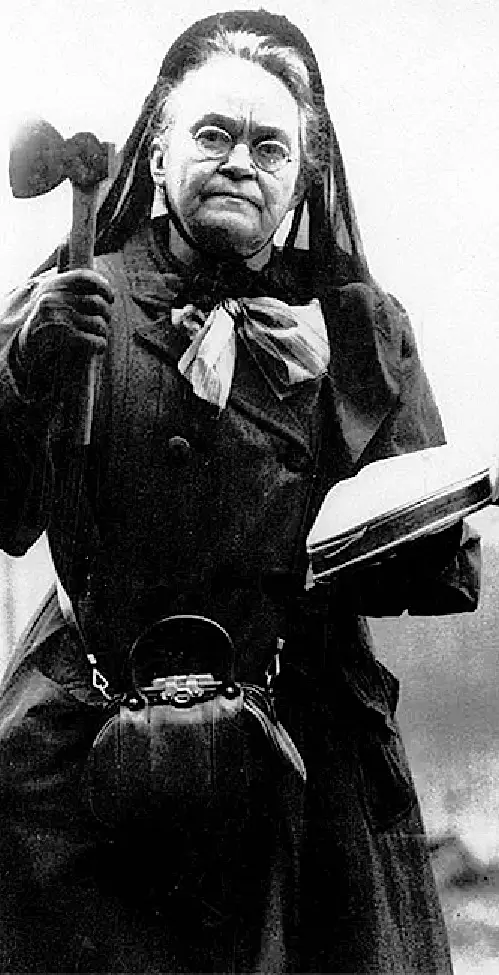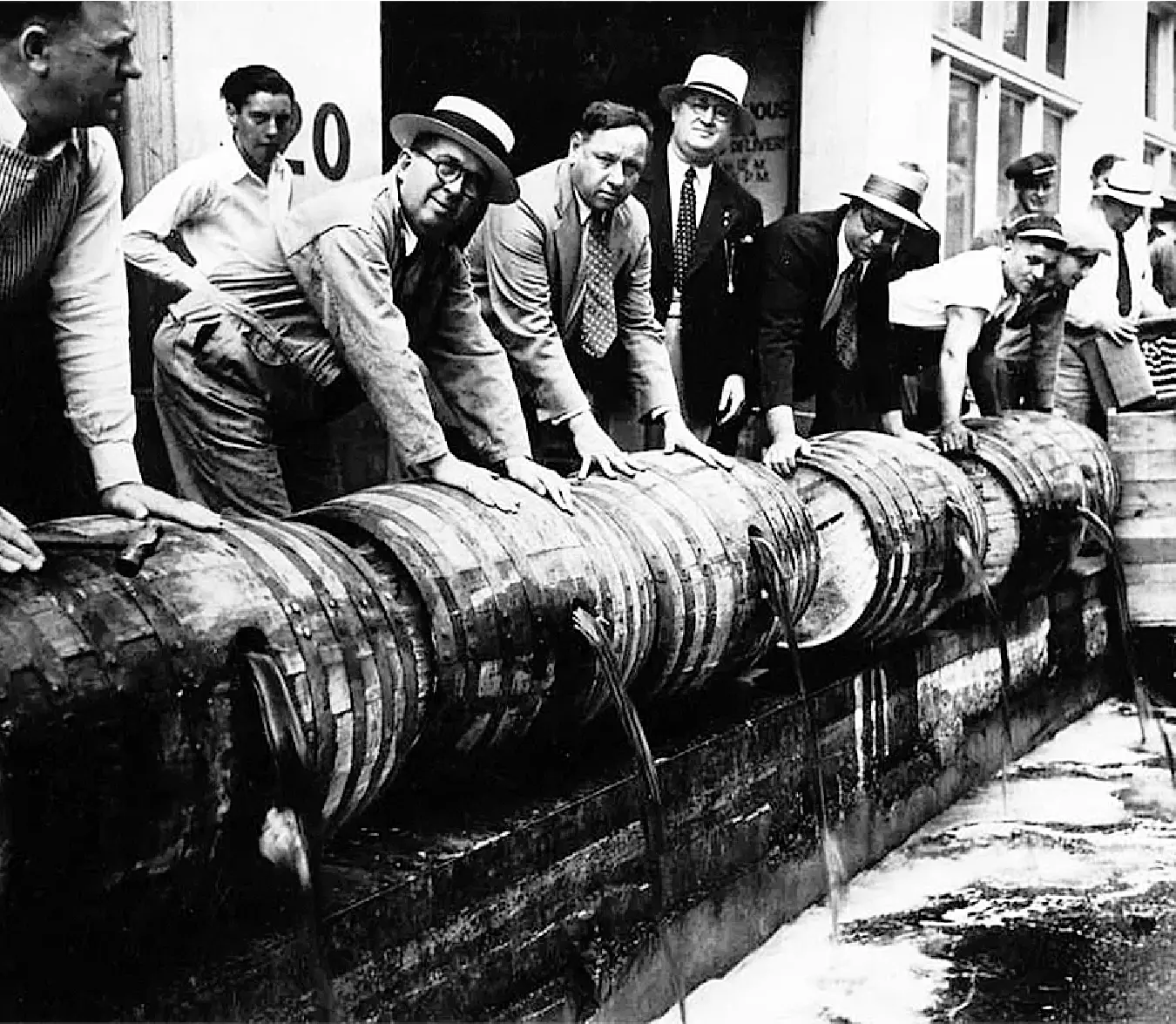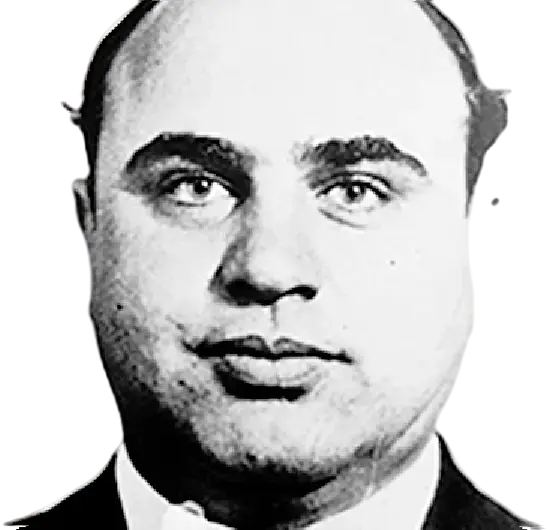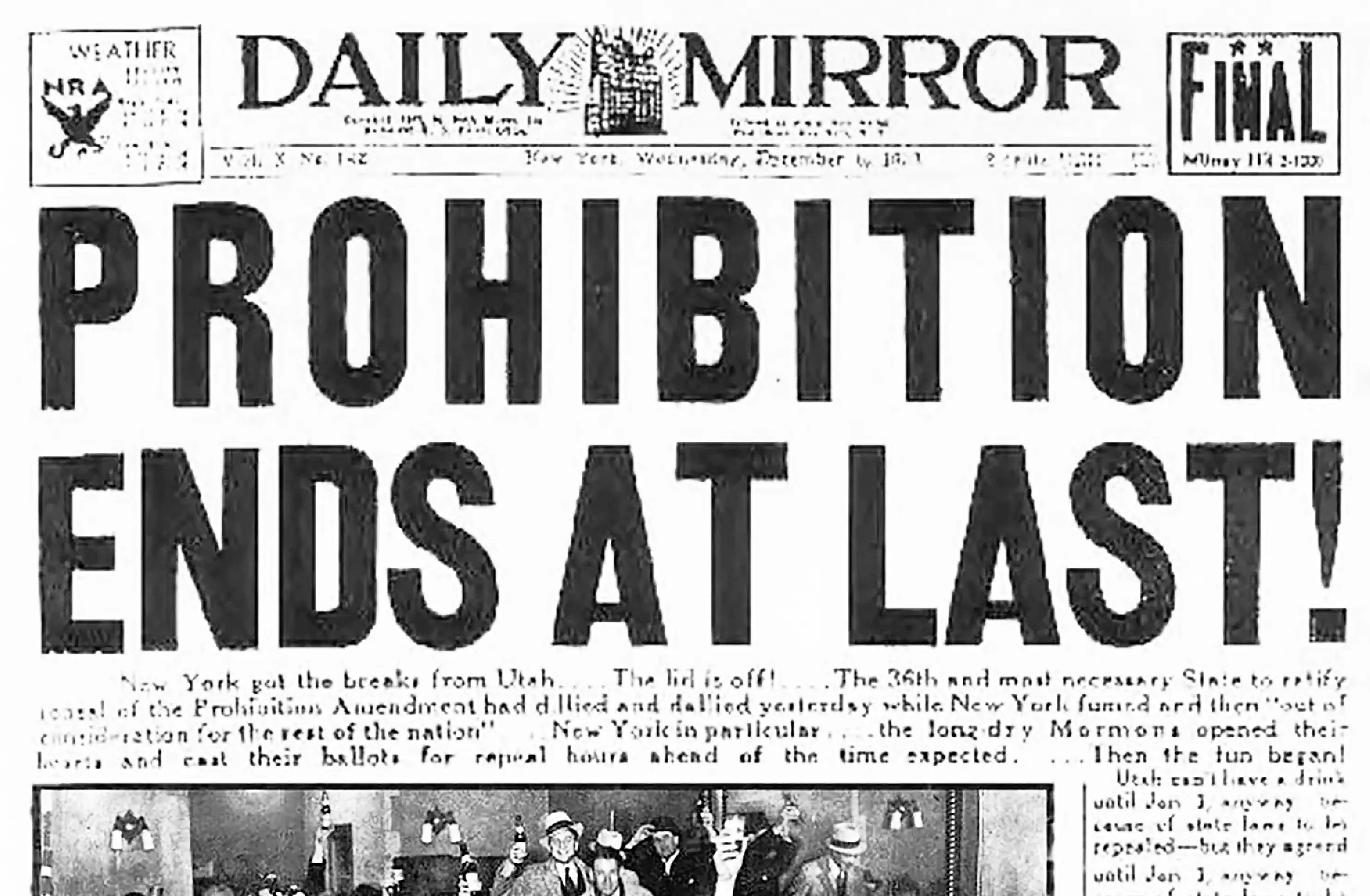On this date 90 years ago, the 21st Amendment was ratified, ending 14 and a half years of national prohibition of alcohol. The attempt by religious temperance groups to legislate the country's morality was a spectacular failure.
The end of prohibition is reported on the front page of William Randolph Hearst's New York Daily Mirror on Dec. 6, 1933.
The Law

The march toward Prohibition can trace its origins to the formation of the American Temperance Society in 1826. It began as a primarily rural and Protestant movement and, to opponents, stayed that way despite gaining momentum as the Industrial Revolution took hold and the growth of cities took off.
The Woman's Christian Temperance Union was founded in 1873. In the 1880s, activist Carrie Nation became famous for dropping unannounced into bars and saloons and breaking liquor bottles with a small hatchet.
By 1917, prohibitionists had built strong majorities in both parties in Congress. In addition, prohibitionists claimed that banning the manufacture of alcohol would allow more grain to be used in the war effort.
A constitutional amendment banning alcohol was proposed and passed by both houses by December 1917. By January 1919, 36 states had ratified the amendment, which essentially began that June but didn't become the law of the land until Jan. 16, 1920.
On Oct. 28, 1919, Congress overrode a veto by President Woodrow Wilson to pass the Volstead Act, directing Prohibition be enforced by Treasury Department agents.
The Result
While Prohibition may have been popular among the nation's rural Methodists, it didn't go over well at all with Catholics, immigrants and, especially, the rapidly growing blue-collar working class in U.S. cities.
Federal agents busted up thousands of illegal stills, speakeasies and booze-running operations, but they soon found that they were outmatched by thirsty consumers.
By pushing the alcohol trade underground, the 18th Amendment and the Volstead Act made criminals of thousands of otherwise law-abiding Aericans. Billions of dollars of tax revenue disappeared overnight — after all, bootleggers don't report their income. Organized crime flourished.

"None of the great boons and usufructs that were to follow the passage of the Eighteenth Amendment has come to pass. There is not less drunkenness in the Republic, but more. There is not less crime, but more. There is not less insanity, but more. The cost of government is not smaller, but vastly greater. Respect for law has not increased, but diminished." — H.L. Mencken, The Baltimore Sun
Among the many crime lords who made fortunes in the illegal alcohol business: Chicago's Al Capone. Bootlegging and operation of speakeasies quickly led to prostitution rings and bribery of government officials.
When he was finally put away by Bureau of Prohibition agent Eliot Ness in 1931, the charge wasn't for alcohol smuggling or sales — it was for not paying taxes on his enormous income from illegal activities

The End
By 1932, even temperance supporters had to admit Prohibition had failed. Franklin Roosevelt ran for president in 1932 with repeal of the 18th Amendment as part of his platform.
One of his first acts in office was to push though a change to the Volstead Act, allowing manufacture and sale of 3.2 percent beer and light wine. On the day the act went into effect, a team of Anheuser-Busch Clydesdale horses delivered a case of Budweiser beer to the White House.
Congress passed the 21st Amendment — which would repeal the 18th Amendment — on Feb. 20, 1933. State legislatures voted their support:
April 10: Michigan
Aug. 8: Alabama
April 25: Wisconsin
Aug. 8: Tennessee
May 8th: Michigan
Aug. 29: Missouri
May 25: Wyoming
Sept. 5: Arizona, Nevada
June 1: New Jersey
Sept. 23: Vermont
June 24: Delaware
Sept. 27: Colorado
June 26: Indiana, Massachusetts
Oct. 10: Minnesota
June 27: New York
Oct. 17: Idaho
July 10: Illinois, Iowa
Oct. 18: Maryland
July 11: New Hampshire, Connecticut
Oct. 25: Virginia
July 24: California
Nov. 2: New Mexico
Aug. 1: Arkansas
Nov. 14: Florida
Aug. 7: Oregon
Nov. 24: Texas
Nov. 27: Kentucky
Nov. 27: Ohio, Pennyslvania, Utah
On Dec. 5, Utah ratified the 21st Amendment, becoming the 36th state to do so and providing the three-quarters majority required to make the amendment law. Roosevelt issued an immediate proclamation announcing the end of Prohibition.
For the record, one state voted against repealing prohibition...
Dec. 5th South Carolina
... one ratified the 21st amendment the day after ratification became official ...
Dec. 6 Maine
... and one voted in favor of ratification, but eight months after it was moot:
Aug. 6, 1934: Montana
This edition of Further Review was adapted for the web by Zak Curley.
